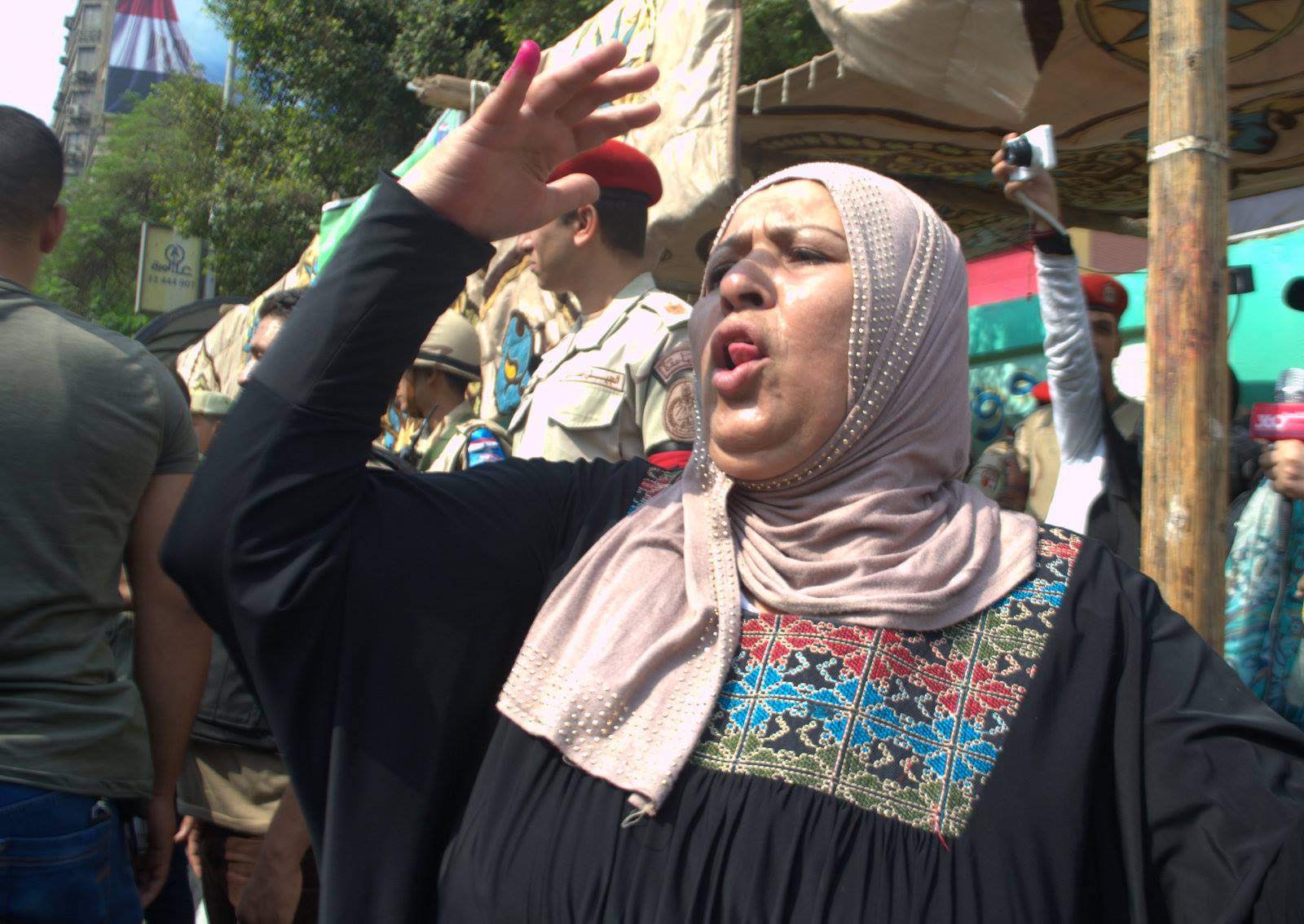Latest NEWS
- Aswat Masriya, the last word
- Roundup of Egypt's press headlines on March 15, 2017
- Roundup of Egypt's press headlines on March 14, 2017
- Former Egyptian President Hosni Mubarak to be released: lawyer
- Roundup of Egypt's press headlines on March 13, 2017
- Egypt's capital set to grow by half a million in 2017
- Egypt's wheat reserves to double with start of harvest -supply min
- Roundup of Egypt's press headlines on March 12, 2017
ANALYSIS: Egyptian women, 'the icon of national action' vote more than men, experts divided on motives

Voting in the first phase of the parliamentary elections kicked off on Sunday, Oct 17, 2015. ASWAT MASRIYA/ Asmaa Gamal
By Omnia Talal
In a a male-dominated society, the fact that four times as many women as men have gone to the polls to vote in Egypt's parliamentary elections, experts say, can be attributed to a variety of factors ranging from heightened political awareness among women to family pressures.
Human rights researcher Yousry Mostafa, however, believes that women's motives to participate are not positive. "The majority of female participants are senior citizens afraid of instability or renewed political turmoil," he said.
"Women in patriarchal societies always play a big role in supporting the regime," Mostafa said.
He added that younger women are more "positive" and "daring", qualities manifested in their decision to boycott the elections race.
The high level of women's participation in the first phase comes in spite of an overall "low turnout" noted by foreign and local press and reported by the Supreme Elections Committee.
On the eve of voting inside Egypt, President Abdel Fattah al-Sisi called on Egyptians to "line up" outside the polling stations, specifically calling on women to participate. Sisi described Egyptian women as the "icon of national action" and the "symbol of sacrifice for the homeland."
Dalia Zokhary, an elections consultant said "we cannot deny" that Sisi's speech played a role in women's participation rates, especially older women.
She also believes that politically aware women are more affected by the political climate, compared to men because they are "keen on [maintaining] their freedom" and so they vote.
However, she noted that this is different in the countryside and border regions, where women vote under pressure from their families or husbands, or because of the lure of electoral bribes.
Zokhary does not expect women's participation in the elections to reflect on the way wome's issues will be addressed in the laws and legislations proposed by the incoming House of Representatives, adding that she expects opposition in parliament to decline because most members are not politicians.
Meanwhile, political activist Shahenda Maqlad believes women are more aware of the "risks" that the country is facing and feel more responsible towards moving past this stage in the country.
The first phase of voting in the parliamentary elections to choose members of the House of Representatives ended on Monday. The second phase is slated for Nov 21-23. The official turnout rate in the first phase is yet to be announced.
Although women's participation far outnumbers that of men in the first phase of the poll, the female turnout this time around is projected to be less than that of the two previous electoral races: the referendum on the constitution and the presidential elections, both held in 2014. Women's participation was 55 percent and 54 percent, respectively.
The HRDO Center for the support of digital expression said that the decline can be attributed to the fact that women no longer feel that elections are useful and to their fear of being subjected to violence given the instability in the country.
The centre added that the main reason women's participation fell is feeling "exploited" because they do not reap benefits after election through laws and policies that protect their rights and interests, making their participation "futile".
Egyptian women were given the right to run for parliament in 1956, the first to be granted suffrage rights in the Arab world. Quotas were twice introduced to Egypt's parliament to guarantee a minimum representation of women, once in 1979 and a second time in 2010.
In the ongoing elections, there is no general quota for women but there is a quota for the number of women on electoral lists, which would guarantee a minimum of 70 women representatives in the next chamber comprising 568 elected seats and 28 appointed by the president, of which five percent must be women by law.










